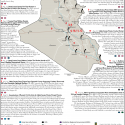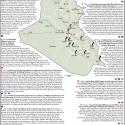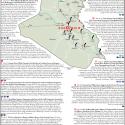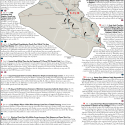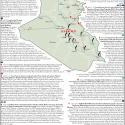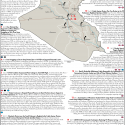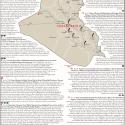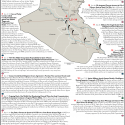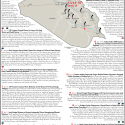Iraq Situation Report: August 19-25, 2020
Aug 28, 2020 - Calvin Pugh, Brian Carter, Katherine Lawlor
Prime Minister Mustafa al-Kadhimi led an Iraqi delegation to Washington, DC, for a productive second stage of the US-Iraq Strategic Dialogue. Delegates representing Iraq and the United States agreed to a number of economic and energy deals and to the continued drawdown of US forces. They did not set a concrete timeline for the complete withdrawal of US forces from Iraq, a key demand of the Iranian regime and its Iraqi proxies. Iran’s proxy militia network in Iraq accelerated its campaigns of targeted assassinations of activists and improvised explosive device (IED) attacks on US-affiliated Iraqi contractors during Kadhimi’s Washington visit. Iran’s proxies likely intend to demonstrate Iraqi Prime Minister Mustafa al-Kadhimi’s domestic weakness and inability to control Iraqi security or protect Iraq’s allies, undermining his domestic authority and global credibility.


